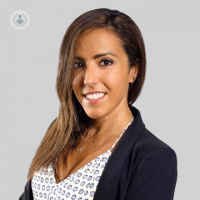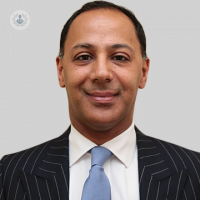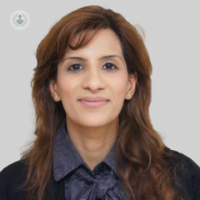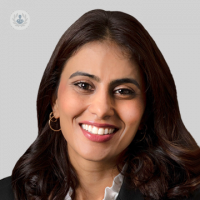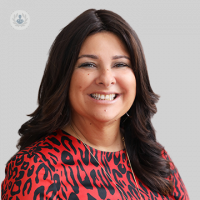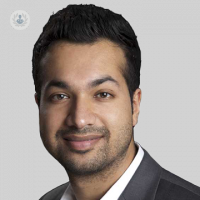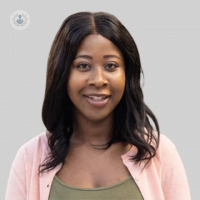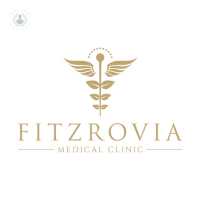What is autism?
Autism, or autism spectrum disorder (ASD), refers to a range of similar conditions that affect a person’s social skills, communication, interaction, interests and behaviour. There are many types of autism, which are caused by different combinations of genetic and environmental influences.
According to the NHS, it is estimated that about 1 in every 100 people in the UK has ASD and that more boys are diagnosed with the condition than girls. There is no cure for ASD but there is a range of therapies and interventions such as speech and language therapy, as well as occupational therapy, which is available to help children and parents.

What are the symptoms of autism?
People with autism usually have problems with social interaction and communication. In really young infants, some children do not make any vocal sounds. Older children have problems and difficulties with making eye contact, facial expressions, body language and gestures when interacting with other people. They also tend to ignore both familiar and unfamiliar people. There is an overall lack of awareness and interest in interacting with other children and they tend to play alone. The overall symptoms of autism at any age include:
- Avoids eye contact
- Prefers to be alone
- Delayed language development
- Repeats the same words and phrases
- Easily upset by small changes in routine or surroundings
- Highly restricted interests
- Repetitive behaviour
- Intense reactions to sounds, smells, tastes, colours and light
What causes autism?
The exact cause of ASD is not known but there are several difficult genetic and environmental factors that are involved. There have been extensive investigations into the belief that the MMR vaccine caused ASD but large-scaled studies around the world with millions of children and researchers have found no evidence of the link between the two. Researchers accept that autism is caused by abnormalities in the structure or function of the brain. Experts are still uncertain about all of the causes and believe that there are multiple causes, with genes playing a major role.
How is autism treated?
There is no cure for autism but there are specialist interventions that help with educational and social development. It may take some time to recognise which intervention will work best for a child because each person with autism is affected differently.
Some interventions involve hours of intensive work. A team of specialists should make a detailed assessment of a child. Local autism teams ensure that every child has a case manager to manage and coordinate the treatment, care and support and the transition into adult care.
There are parent support programmes, which offer in-depth advice for those who have a child recently diagnosed with ASD. In some cases, medication may be prescribed to treat some symptoms or conditions associated with ASD. These include:
- sleeping problems;
- depression;
- epilepsy;
- attention deficit hyperactivity disorder (ADHD) and;
- aggressive behaviour.
Which doctor specialises in autism?
There are various specialists that treat autism and ASD. They include psychologists, psychiatrists, neurologists and developmental specialists.
11-13-2012 10-24-2023Autism
Dr Maria Martinez Herves - Psychiatry
Created on: 11-13-2012
Updated on: 10-24-2023
Edited by: Karolyn Judge
What is autism?
Autism, or autism spectrum disorder (ASD), refers to a range of similar conditions that affect a person’s social skills, communication, interaction, interests and behaviour. There are many types of autism, which are caused by different combinations of genetic and environmental influences.
According to the NHS, it is estimated that about 1 in every 100 people in the UK has ASD and that more boys are diagnosed with the condition than girls. There is no cure for ASD but there is a range of therapies and interventions such as speech and language therapy, as well as occupational therapy, which is available to help children and parents.

What are the symptoms of autism?
People with autism usually have problems with social interaction and communication. In really young infants, some children do not make any vocal sounds. Older children have problems and difficulties with making eye contact, facial expressions, body language and gestures when interacting with other people. They also tend to ignore both familiar and unfamiliar people. There is an overall lack of awareness and interest in interacting with other children and they tend to play alone. The overall symptoms of autism at any age include:
- Avoids eye contact
- Prefers to be alone
- Delayed language development
- Repeats the same words and phrases
- Easily upset by small changes in routine or surroundings
- Highly restricted interests
- Repetitive behaviour
- Intense reactions to sounds, smells, tastes, colours and light
What causes autism?
The exact cause of ASD is not known but there are several difficult genetic and environmental factors that are involved. There have been extensive investigations into the belief that the MMR vaccine caused ASD but large-scaled studies around the world with millions of children and researchers have found no evidence of the link between the two. Researchers accept that autism is caused by abnormalities in the structure or function of the brain. Experts are still uncertain about all of the causes and believe that there are multiple causes, with genes playing a major role.
How is autism treated?
There is no cure for autism but there are specialist interventions that help with educational and social development. It may take some time to recognise which intervention will work best for a child because each person with autism is affected differently.
Some interventions involve hours of intensive work. A team of specialists should make a detailed assessment of a child. Local autism teams ensure that every child has a case manager to manage and coordinate the treatment, care and support and the transition into adult care.
There are parent support programmes, which offer in-depth advice for those who have a child recently diagnosed with ASD. In some cases, medication may be prescribed to treat some symptoms or conditions associated with ASD. These include:
- sleeping problems;
- depression;
- epilepsy;
- attention deficit hyperactivity disorder (ADHD) and;
- aggressive behaviour.
Which doctor specialises in autism?
There are various specialists that treat autism and ASD. They include psychologists, psychiatrists, neurologists and developmental specialists.


Neurodiversity and bullying: How to help your child thrive
By Professor Debora Elijah
2024-11-21
In her latest online article, renowned consultant cognitive neuropsychologist Professor Debora Elijah offers her expert advice on how neurodivergent children can deal with bullying. See more


All about autism and Asperger's syndrome in girls
By Dr Nikki Baatjes
2024-11-21
Autism spectrum disorder (ASD) and Asperger's syndrome are neurodevelopmental conditions that affect how individuals interact and communicate with others. While these conditions are often associated with boys, it's essential to recognise they can also affect girls. Leading neurodevelopmental paediatric consultant Dr Nikki Baatjes provides insights into autism and Asperger's syndrome in girls to help parents and caregivers better understand and support their children. See more
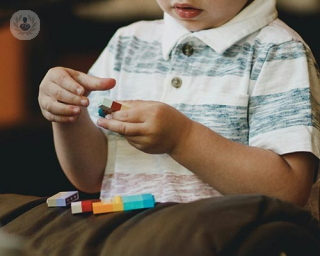

Decoding autism
By Dr Aaron Lovelle
2024-11-20
Here, in one of our latest medical articles, experienced consultant adult and adolescent psychiatrist Dr Aaron Lovelle decodes autism, providing the answers to your questions about the condition. See more
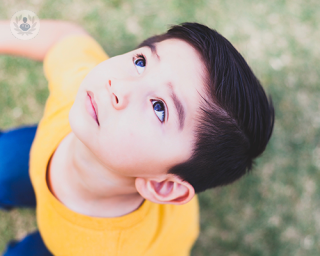

Autism assessments for children aged 3-15: A comprehensive guide
By Dr Kanika Grover
2024-11-20
Autism spectrum disorder (ASD) is a developmental condition that impacts communication, behaviour, and social interactions. Early diagnosis and intervention are crucial for improving the quality of life for children with autism. Here, Dr Kanika Grover, renowned consultant paediatrician with special interest in developmental paediatrics, offers an expert insight into autism assessments for children aged 3-15, addressing key concerns and guiding parents through the process. See more
Experts in Autism
-
-
-
Dr Bijal Chheda-Varma
PsychologyExpert in:
- Mental health assessment
- Autism
- ADHD
- Anxiety
- Obsessive compulsive disorder (OCD)
- Eating disorders
-
Professor Debora Elijah
PsychologyExpert in:
- ADHD
- Autism
- Anxiety
- Emotional control
- Group therapy
- Social phobia
-
- See all

Key Mind Body - Dr Annique Clopon
Key Mind Body - Dr Annique Clopon
71-75 Shelton Street
No existe teléfono en el centro.
By using the telephone number provided by TOP DOCTORS, you automatically agree to let us use your phone number for statistical and commercial purposes. For further information, read our Privacy Policy
Top Doctors

Fitzrovia Medical Clinic
Fitzrovia Medical Clinic
Fitzrovia Hospital, 13-14 Fitzroy Square
No existe teléfono en el centro.
By using the telephone number provided by TOP DOCTORS, you automatically agree to let us use your phone number for statistical and commercial purposes. For further information, read our Privacy Policy
Top Doctors

London International Patient Services (LIPS)
London International Patient Services (LIPS)
5 Devonshire Place, W1G 6HL
No existe teléfono en el centro.
By using the telephone number provided by TOP DOCTORS, you automatically agree to let us use your phone number for statistical and commercial purposes. For further information, read our Privacy Policy
Top Doctors
-
-
Fitzrovia Medical Clinic
Fitzrovia Hospital, 13-14 Fitzroy Square , Central LondonExpert in:
- Adult Diabetes
- Chronic diseases
- Women’s health
- Paediatrics
- Health check up
- Sexual health
-
London International Patient Services (LIPS)
5 Devonshire Place, W1G 6HL, W1G Marylebone LondonExpert in:
- Orthopaedic spinal surgery
- Plastic surgery, reconstructive and aesthetics
- Hand and wrist
- Otolaryngology
- Foot and ankle
- Knee
- Most viewed diseases, medical tests, and treatments
- School refusal
- Migraine
- Maternal mental health
- Paediatric rheumatology
- Autoimmune diseases
- Joint pain
- Child nutrition
- Nutrition
- Abdominal pain
- Pelvic pain syndrome
